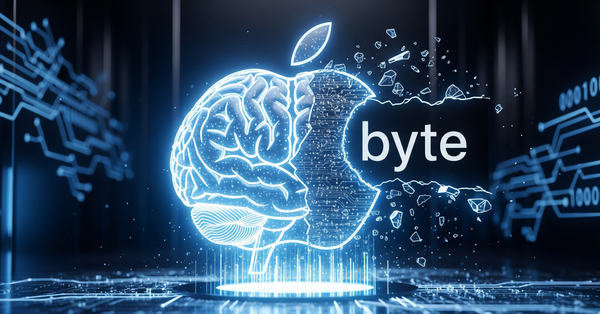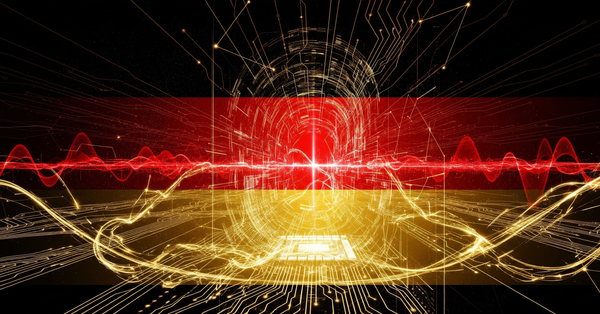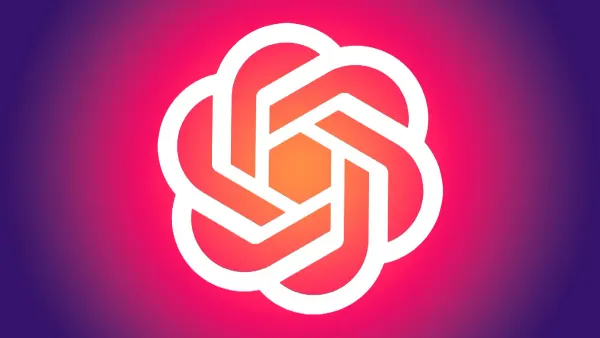Quantum Memory: The Key to Unlocking the Potential of the Quantum Internet
In a quantum network, quantum memory acts as a buffer, temporarily storing quantum information while awaiting further processing or transmission.

Developing a quantum internet has become a primary focus for researchers and technology companies. This groundbreaking network promises to revolutionize communication, cybersecurity, and computational power by harnessing the principles of quantum mechanics. However, realizing a fully functional quantum internet hinges on developing a critical component: quantum memory.
What Is Quantum Memory?
Quantum memory is the quantum equivalent of classical computers' random access memory (RAM). It is designed to store and retrieve quantum information without destroying the delicate quantum states of the particles involved. In the context of a quantum network, quantum memory serves as an interface between the communication channels and the local functional units, enabling the temporary storage of quantum information and facilitating processes such as entanglement swapping and quantum teleportation.
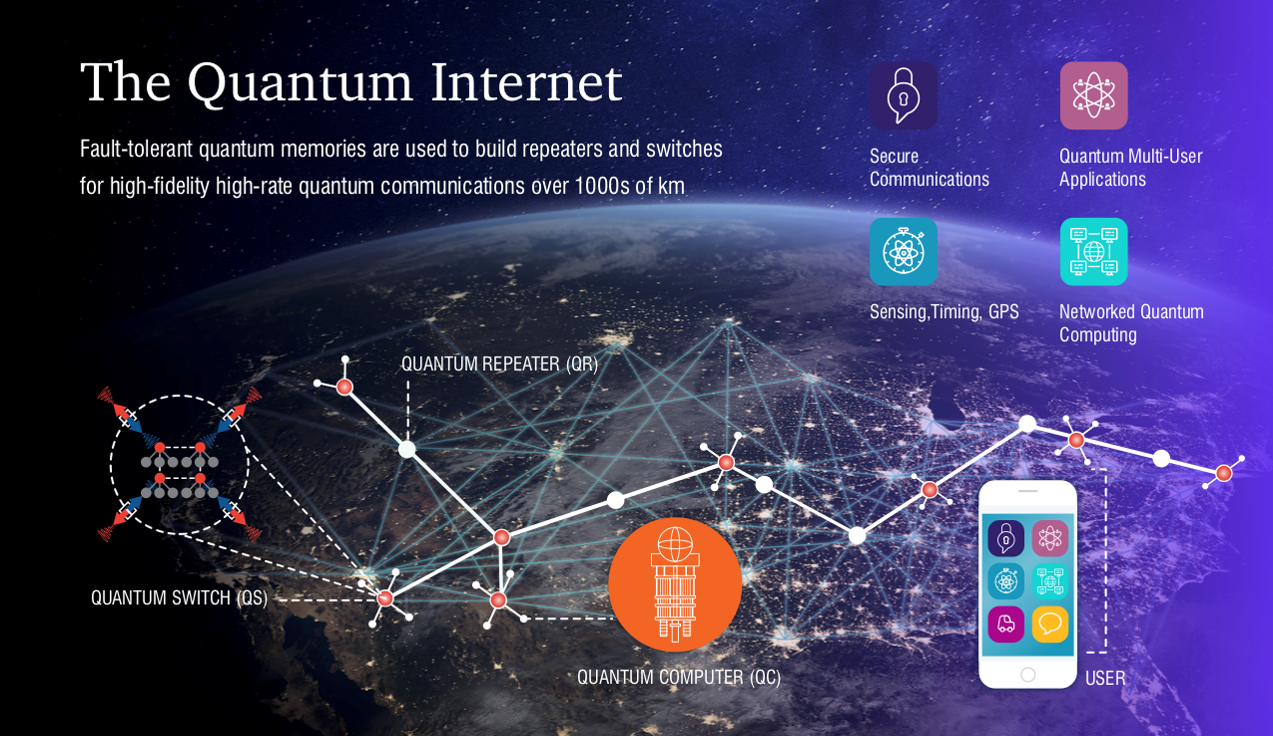
In this article, we'll examine the role and functionality of quantum memory in quantum networks, explore recent technological advancements, discuss the challenges and future directions of this groundbreaking technology, and examine its potential impact on the development of the quantum internet.
The Role of Quantum Memory in Quantum Networks
Quantum memory plays a crucial role in the functioning of a quantum network. Unlike classical information, which can be easily stored and transmitted without degradation, quantum information is highly sensitive to its environment and can degrade rapidly as it travels over distances. This fragility makes reliable storage mechanisms essential for maintaining the integrity of quantum data.
In a quantum network, quantum memory acts as a buffer, temporarily storing quantum information while awaiting further processing or transmission. This capability is significant for long-distance quantum communication, where the signal may need to be held at intermediate nodes before being sent to its final destination.
Moreover, quantum memory enables the implementation of key quantum communication protocols, such as entanglement swapping and quantum teleportation. Entanglement swapping involves the exchange of quantum entanglement between two pairs of entangled particles, effectively creating a new pair over a longer distance. Quantum teleportation, on the other hand, allows the transfer of a quantum state from one location to another without physically transmitting the particle. Both of these processes rely on the ability to store and manipulate quantum states, which is made possible by quantum memory.
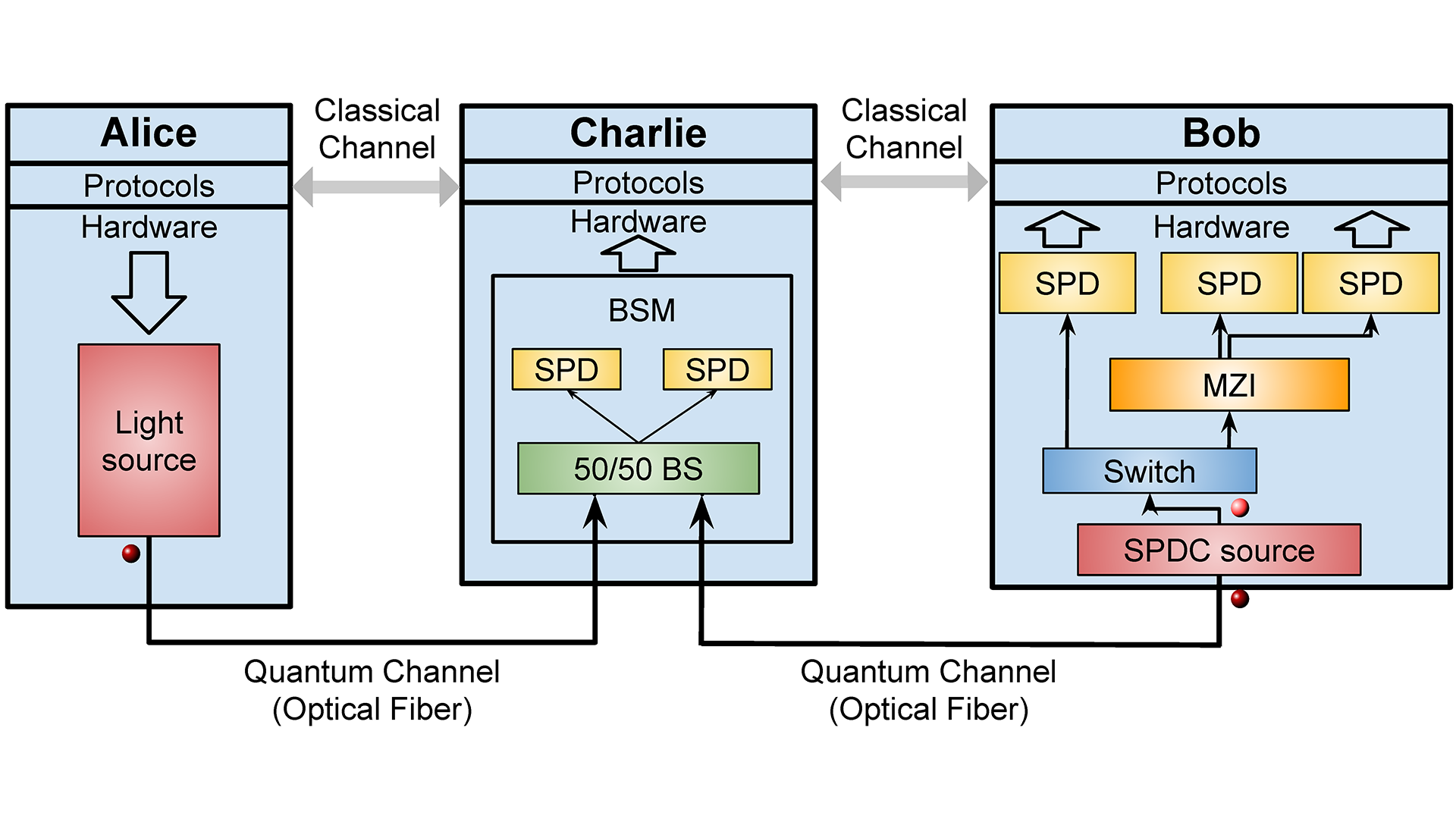
Technological Advancements in Quantum Memory
Significant advancements have been made in the development of quantum memory technologies in recent years. One of the most notable breakthroughs has been the creation of quantum memories that can operate at room temperature. Previously, quantum memories required cooling to near absolute zero, which greatly complicated the infrastructure required for quantum networking. The ability to operate at room temperature not only simplifies the system but also enhances the scalability and practicality of quantum networks.
Another important development has been improving quantum memory storage times and retrieval efficiencies. Researchers have made strides in extending the coherence times of quantum states, allowing them to be stored for longer durations without losing their quantum properties. Additionally, the efficiency with which quantum states can be retrieved from memory has increased, enabling more reliable and faster quantum communication.
These advancements have brought quantum memory technology closer to practical implementation in quantum networks. However, challenges remain to be addressed before quantum memory seamlessly integrates into a large-scale quantum internet.
Challenges and Future Directions
Despite the significant progress made in quantum memory research, several challenges remain in developing this technology for a quantum internet. One of the primary challenges is maintaining the coherence of quantum states over long distances. As quantum information travels through a network, it is subject to various sources of noise and decoherence, which can cause the quantum state to degrade or be lost entirely. Developing robust error correction mechanisms to counteract this inherent fragility is an ongoing area of research.
Another challenge is achieving high-fidelity quantum state transfer between quantum memories and other components of the quantum network. Efficient and reliable transfer of quantum states is essential for the smooth functioning of a quantum internet, and any errors or losses during this process can significantly impact the network's overall performance.
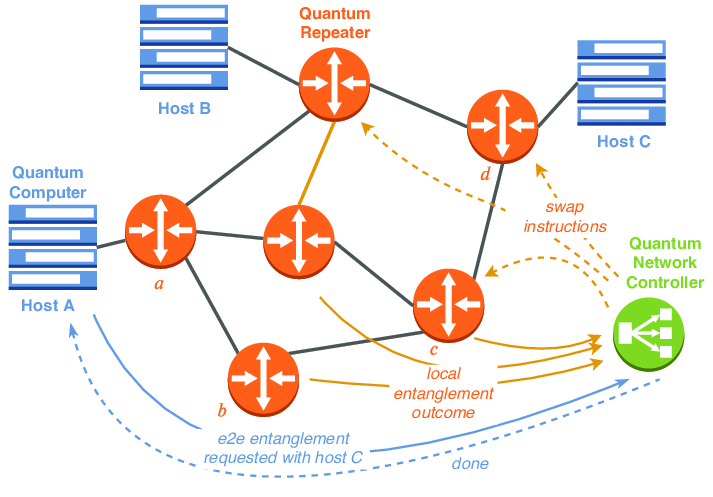
The non-cloning nature of quantum information also presents a unique challenge. Unlike classical information, quantum information cannot be copied without altering the original state. This property, known as the no-cloning theorem, complicates the design of quantum networks and requires the development of specialized protocols for distributing and managing quantum information.
Future research in quantum memory technology will likely address these challenges and improve quantum memory's overall performance and scalability. This will involve developing advanced materials and architectures for quantum memory and optimizing quantum state transfer and error correction protocols.
Integration of quantum memories with other quantum technologies, such as quantum repeaters and entanglement sources, will also be a key area of focus. Seamless integration of these components is necessary to realize a fully functional quantum internet, and close collaboration between researchers and engineers from various disciplines is required.
The Potential Impact of Quantum Memory on the Quantum Internet
The development of quantum memory technology has far-reaching implications for the future of the quantum internet. By enabling the storage and manipulation of quantum information, quantum memory opens up a wide range of possibilities for quantum communication and computation.
One of the most significant potential applications of a quantum internet is cybersecurity. Quantum key distribution (QKD) protocols, which rely on the principles of quantum mechanics to ensure communication security, could become the standard for secure data transmission in the future. Quantum memory would play a crucial role in implementing QKD, allowing the storage and retrieval of quantum keys at intermediate nodes in the network.
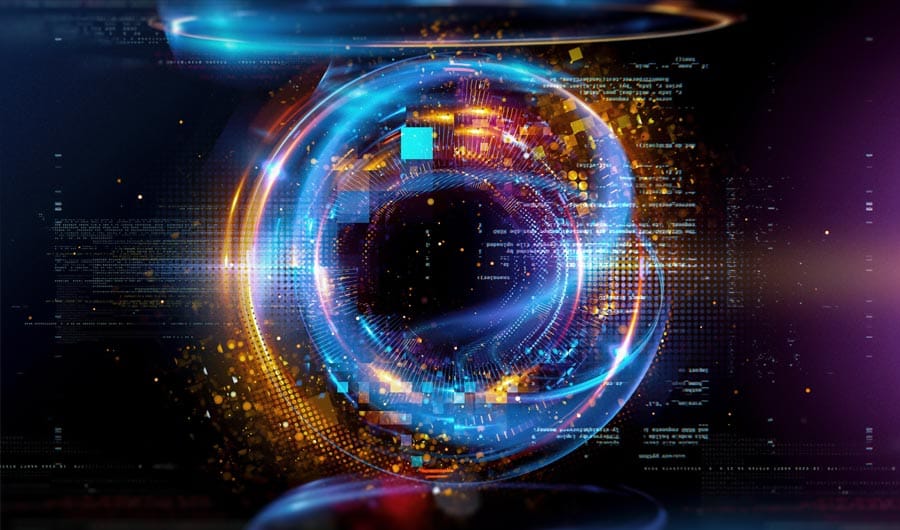
Quantum memory could also enable the development of distributed quantum computing, where quantum processing tasks are spread across multiple nodes in a quantum network. This could lead to the creation of powerful quantum computing clusters capable of tackling complex problems beyond the reach of classical computers.
In addition to these applications, a quantum internet equipped with quantum memory could revolutionize fields such as sensing and metrology. Quantum sensors, which exploit the sensitivity of quantum states to external perturbations, could be linked together via a quantum network to create highly sensitive and accurate measurement systems. This could have significant implications for astronomy, geology, and medical imaging.
Conclusion: Paving The Way Forward
Quantum memory is a critical component in developing a quantum internet, serving as the interface between communication channels and local functional units in a quantum network. Recent advancements in quantum memory technology, such as the ability to operate at room temperature and improved storage times and retrieval efficiencies, have brought us closer to realizing a fully functional quantum internet.
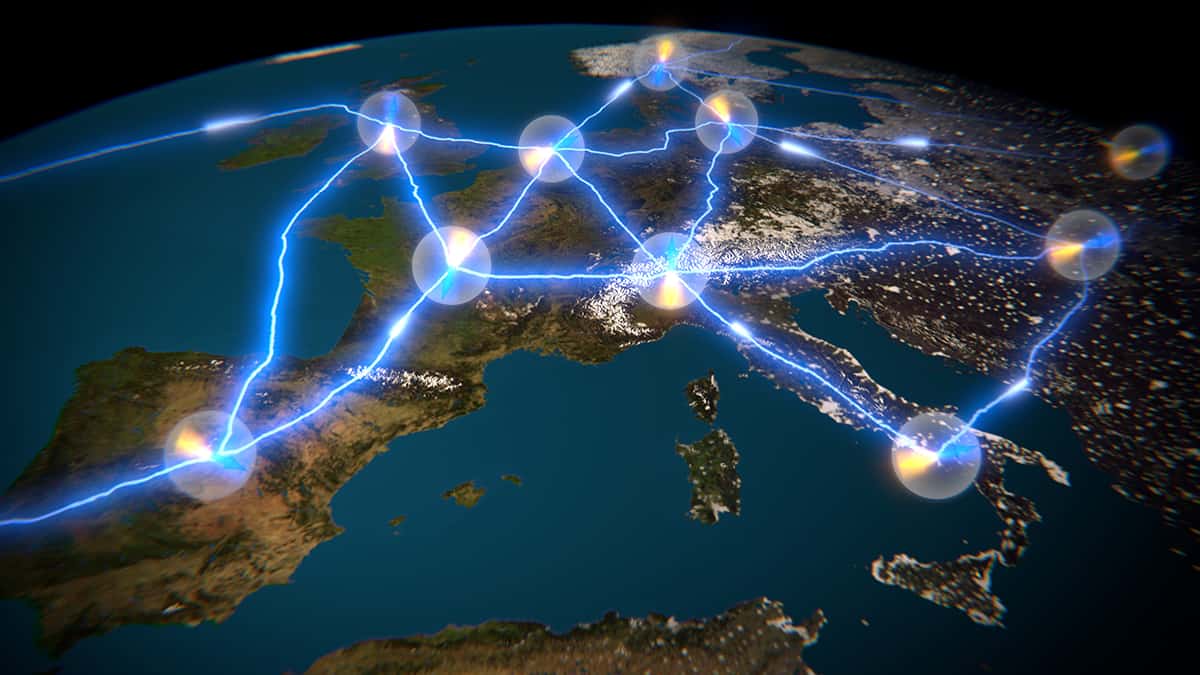
However, challenges remain in the development of quantum memory, including maintaining the coherence of quantum states over long distances, achieving high-fidelity quantum state transfer, and developing robust error correction mechanisms. Future research will focus on addressing these challenges and improving the performance and scalability of quantum memories.
The potential impact of quantum memory on the quantum internet is vast, with applications ranging from secure communication and distributed quantum computing to advanced sensing and metrology. As research in this field continues to progress, we can expect significant advancements in the development of the quantum internet, paving the way for a new era of communication and computation.

